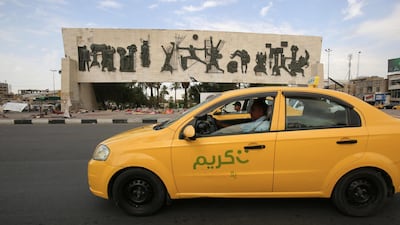Tech giants have come in for a fair share of criticism recently that they are irresponsible with the information they gain about their users. Added to this, data breaches and compromised security, mean many now view technology that is intended to make our lives more seamless with increasing suspicion. But while there are valid concerns which must be addressed, technology is far from being a malevolent force. It can make our lives easier and can even help countries overcome the ravages of war. That is now evident in Iraq, where Careem launched its services in January last year and has since rolled out its Baghdad operation to Najaf and Erbil.
This feat would have been impossible as little as two years ago as Iraqis were still fighting to liberate ISIS-held Mosul, the last Iraqi stronghold of the terror group that once ruled over vast swathes of the country and neighbouring Syria. After years of conflict, Iraq is on a path to reconstruction but bouts of violence are not uncommon and some areas still lack basic infrastructure such as roads, access to electricity and internet.
This poses an obvious challenge for the Dubai-based app, which relies on internet connection and roads to operate. But the effort has yielded manifold benefits for Iraqis. The app has provided many residents with much-needed jobs and opened up the country to the world. According to Careem, taxi drivers recruited to its ranks have increased their income by up to 50 per cent. The app has also helped put Iraq back on the world map. Since the ride-hailing service relies on accurate digital maps, Careem took the initiative to add 15,000 Iraqi locations to Google Maps, improving the overall mapping of the country. "We physically would go to roads that were closed and send those co-ordinates to Google," Mohamed Al Hakim, Careem's general manager for Iraq, told The National. In a country with one of the lowest smartphone penetration rates in the world, Careem drivers have also learned valuable technological skills by using the app. The service also aims to improve safety, with the firm enabling customers to share their whereabouts with a friend or family member in real time.
Technology is an efficient tool to find new solutions to old problems, if companies are willing to take the challenge. Such initiatives must be encouraged as they can have a positive impact in places where they are needed most.

